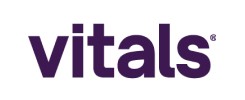
Telemedicine Appointments Are Now Available
Your Trusted Double - Board Certified Gastroenterologist





MWGI provides infusion therapies to treat patients with autoimmune disorders, such as Crohn’s Disease and Ulcerative Colitis who have not responded to other drug therapies.
Our on-site Infusion suite provides expert care and allows patients to receive individualized attention during the infusion in a relaxed and comfortable setting – with all aspects of care coordinated with your physician. Patients avoid cumbersome, time consuming, expensive hospital services.
Benefits of choosing our stand alone infusion center:
Infusion therapy involves the administration of medication through a needle or catheter. It is indicated when a patient’s condition is so severe that it cannot be treated effectively by oral medications. Typically, “infusion therapy” means that a drug is administered intravenously.
IMPORTANT SAFETY INFORMATION
Only your doctor can recommend a course of treatment after checking your health condition. REMICADE® (infliximab) can cause serious side effects such as lowering your ability to fight infections. Some patients, especially those 65 years and older, have had serious infections caused by viruses, fungi or bacteria that have spread throughout the body, including tuberculosis (TB) and histoplasmosis. Some of these infections have been fatal. Your doctor should monitor you closely for signs and symptoms of TB during treatment with REMICADE®.
You should discuss any concerns about your health and medical care with your doctor.
What should I tell my doctor before I take REMICADE®?
You should let your doctor know if you have or ever had any of the following:
Tuberculosis (TB) or have been near someone who has TB. Your doctor will check you for TB with a skin test. If you have latent (inactive) TB, you will begin TB treatment before you start REMICADE®.
Lived in a region where certain fungal infections like histoplasmosis or coccidioidomycosis are common.
Infections that keep coming back, have diabetes or an immune system problem.
Any type of cancer or a risk factor for developing cancer, for example, chronic obstructive pulmonary disease (COPD) or had phototherapy for psoriasis.
Heart failure or any heart condition. Many people with heart failure should not take REMICADE®.
Hepatitis B virus (HBV) infection or think you may be a carrier of HBV. Your doctor will test you for HBV.
Nervous system disorders (like multiple sclerosis or Guillain-Barré syndrome).
Also tell your doctor if you:
Use the medicines Kineret (anakinra), Orencia (abatacept) or Actemra (tocilizumab) or other medicines called biologics used to treat the same problems as REMICADE®.
Are pregnant, plan to become pregnant, are breast-feeding, or have a baby and were using REMICADE® during your pregnancy. Tell your baby’s doctor about your REMICADE® use. If your baby receives a live vaccine within 6 months after birth, your baby may develop infections with serious complications that can lead to death.
Recently received or are scheduled to receive a vaccine. Adults and children taking REMICADE® should not receive live vaccines or treatment with a weakened bacteria (such as BCG for bladder cancer) while taking REMICADE®.
Important Safety Information
Do not receive ENTYVIO if you have had an allergic reaction to ENTYVIO or any of its ingredients.
ENTYVIO may cause serious side effects, including:
Infusion and serious allergic reactions can happen while you are receiving ENTYVIO or several hours after treatment. You may need treatment if you have an allergic reaction. Tell your healthcare provider or get immediate medical help if you get any of these symptoms during or after an infusion of ENTYVIO: rash, itching, swelling of your lips, tongue, throat or face, shortness of breath or trouble breathing, wheezing, dizziness, feeling hot, or palpitations (feel like your heart is racing).
ENTYVIO may increase your risk of getting a serious infection. Before receiving and during treatment with ENTYVIO, tell your healthcare provider if you think you have an infection or symptoms of an infection, such as fever, chills, muscle aches, cough, shortness of breath, runny nose, sore throat, red or painful skin or sores on your body, tiredness, or pain during urination.
Call your healthcare provider for medical advice about side effects.
Before receiving ENTYVIO, tell your healthcare provider about all of your medical conditions, including if you: have or think you may have an infection or have infections that keep coming back; have liver problems; have tuberculosis (TB) or have been in close contact with someone with TB; have recently received or are scheduled to receive a vaccine; or if you are pregnant, breastfeeding, plan to become pregnant, or plan to breastfeed.
You are encouraged to report negative side effects of prescription drugs to the FDA. Visit www.fda.gov/medwatch or call 1-800-FDA-1088.
Uses of ENTYVIO® (vedolizumab)
ENTYVIO is a prescription medicine used in adults:
with moderate to severe ulcerative colitis (UC) when certain other UC medicines have not worked well enough or cannot be tolerated.
ENTYVIO may help to: begin reducing some symptoms, induce and maintain remission, reduce or stop the use of corticosteroids, and improve the way the lining of your large intestine looks to your healthcare provider.
with moderate to severe Crohn’s disease (CD) when certain other CD medicines have not worked well enough or cannot be tolerated.
ENTYVIO may help to: begin reducing some symptoms, achieve remission, and reduce or stop the use of corticosteroids.
Venofer® (iron sucrose injection, USP) provides first-line IV iron therapy for the treatment of iron deficiency anemia (IDA) in adult and pediatric patients 2 years and older with chronic kidney disease (CKD). It should not be used in patients with known hypersensitivity to Venofer® has more than 65 years of worldwide clinical experience in the treatment of CKD-related iron deficiency anemia.
IMPORTANT SAFETY INFORMATION
CONTRAINDICATIONS
Venofer® is contraindicated in patients with known hypersensitivity to Venofer.
Excessive therapy with parenteral iron can lead to excess storage of iron with the possibility of iatrogenic hemosiderosis. All adult and pediatric patients receiving Venofer require periodic monitoring of hematologic and iron parameters (hemoglobin, hematocrit, serum ferritin and transferrin saturation). Do not administer Venofer to patients with evidence of iron overload. Transferrin saturation (TSAT) values increase rapidly after intravenous administration of iron sucrose; do not perform serum iron measurements for at least 48 hours after intravenous dosing.
Because adverse reactions from post-marketing experience are reported voluntarily from a population of uncertain size, it is not always possible to reliably estimate their frequency or establish a causal relationship to drug exposure. In addition to potential serious hypersensitivity reactions, the following adverse reactions have been identified during post-approval use of Venofer® (iron sucrose injection, USP): bronchospasm, dyspnea, convulsions, light-headedness, confusion, angioedema, swelling of the joints, hyperhidrosis, bradycardia and chromaturia.
Symptoms associated with Venofer total dosage or infusing too rapidly included hypotension, dyspnea, headache, vomiting, nausea, dizziness, joint aches, paresthesia, abdominal and muscle pain, edema and cardiovascular collapse. These adverse reactions have occurred up to 30 minutes after the administration of Venofer injection. Reactions have occurred following the first dose or subsequent doses of Venofer. Slowing the infusion rate may alleviate symptoms.
Injection site discoloration has been reported following extravasation. Assure stable intravenous access to avoid extravasation.
REFERENCES:
1. Venofer®. Shirley, NY: American Regent, Inc.; 2015. 2. Data on file. Iron Sucrose Periodic Safety Update Report, February 2016. Luitpold Pharmaceuticals, Inc. Shirley, NY.
Check Out Our Reviews & Testimonials
At Midwest GI Health we are proud to share our patient referrals from Healthgrades, Vitals, Google and Facebook. Please take some time to see how pleased our patients are with our professionalism and quality of care.
After years and years of stomach issues and having the same simple tests done with no results, I saw Dr. Taormina and he’s actually trying to help figure it all out, new tests…

The staff was very professional and friendly. The exam was explained by a nurse and the Anesthesiologist then came in to explain what she was going to do. Dr Taormina came…

The facility is small enough you don’t feel like a number and big enough you know they have what they need in case of an emergency. Dr Taormina is easy to talk to and answers all questions. Explains everything well, easy to understand. The group of nurses are also great!

Free Resources




with the Exceptional Service You Deserve!
3601 NE Ralph Powell Rd, Suite A
Lee’s Summit, MO 64064
Phone: (816) 836-2200
Fax: (816) 836-2244
medical marketing & seo by: kcwebdesigner.com | kcseopro.com